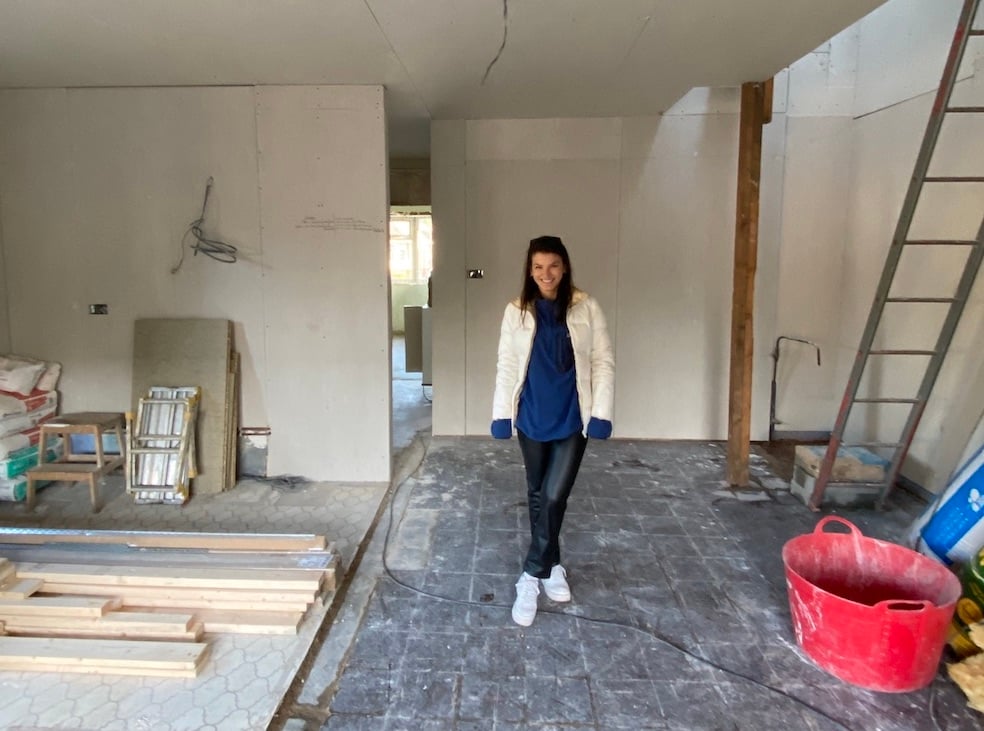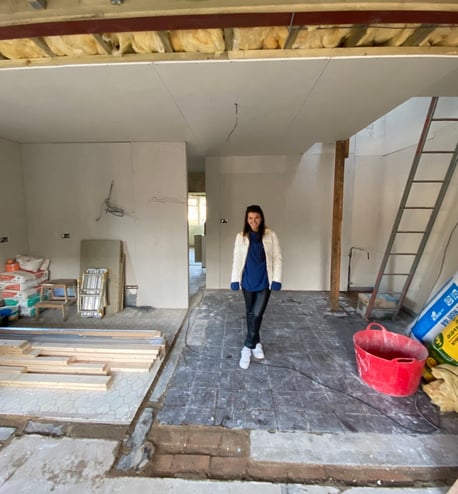How to Secure the Best Property Development Bridging Loan
Learn how to secure the best property development bridging loan with our comprehensive guide on tips, benefits, and key factors to consider for...
 Borrower Tips
Borrower Tips
Between the Brickflow team, we’ve completed a fair few successful property developments. We’re speaking to Ina Bakalova, one of our product managers, to talk about her developments and answer the ultimate question – is property development a good career?
| Table of Contents |
So, is property development a good career? Let’s get into the fundamentals of the property developer job with Ina.
How many projects have you completed?
‘I’ve worked on many developments both with my family who are in the industry and with clients who were property developers in London.
Personally, I’ve completed three projects, all pretty different. A lot of property developers say you should have a cookie-cutter approach, like pick one type of development and just keeping doing that. I definitely didn’t do that! My first project was a bungalow, my second a HMO property with serviced apartments in the basement conversion and lastly a house development.’
Where are your UK property developments?
‘They’re all over the place! One is in Basildon, which has a strong rental market, the HMO is in Stockport and my most recent, and family home, is in Hertfordshire.’
Did they complete on time and on budget?
‘The first one was a complete renovation of a bungalow (I love bungalows and there’s such a short supply) that didn’t involve much building work. I considered dividing it into a two-bed but ultimately decided against it because there was enough demand in that area for one-bed bungalows. So, it was on time and on budget – but that was the only one!
On the Stockport development, I was lucky because I worked with a builder who was just starting out and wanted to get a good name for himself. So he stuck to his initial quote even though he spent way longer on the project than he planned. It meant I stayed on budget but completion was delayed.’
Were your projects successful and achieved the profits you expected?
‘Yes, for all of them, but that’s down to doing the due diligence beforehand and buying well. I developed to rent, so in terms of rents, they’ve been higher than I expected, but I tend to be conservative on prices.’
There’s lots of people who might be wondering how do I start a career in property development? So we’re asking Ina how she first got involved.
What did you do before property developing?
‘I worked in tech sales and I started my first development whilst still working full time. That was 5 years ago.’
What prompted you to become a property developer?
‘It wasn’t necessarily one thing, I just liked the idea of having an asset, sort of like a backup in case something happened to me or my job or I couldn’t work. Also, I always wanted to start my own venture so I wanted to have a relatively stable passive income whilst I was building my business.’
Any tips for any would-be UK property developer?
‘I’d say don’t wait to have all your ducks in a row. With my first property, I had no idea how I was going to fund it but the opportunity came up for an unmissable off-market purchase. My family were doing works to the property next door and I was on site a lot, learning, and started chatting with the neighbour. She knew someone a few doors down that was selling. After some number crunching, I just went for it. The rest kind of just fell into place after that.
So when an opportunity comes up, just take those steps, even if the timing isn’t quite right, or you want to have more equity ready. It’s easier to figure it out later than regret not going for it and just keep wondering how do I start a career in property development?’
People often ask is it stressful being a property developer? We asked Ina about the challenges she faced.
How hands-on were you with the others?
‘It makes sense to not be hands-on because the professionals you’ve employed will do a much better job than you. But there’s certain parts that I just love doing, like drawing the floor plans, creating the designs and deciding interiors. I also loved having a few days on site where I wasn’t sat on my laptop and was out, joining the manual labour, shifting heavy stuff around.’

Were you happy with the third-parties you worked with?
‘Property really is a people business, and it’s all about relationships. With the Stockport development, for example, I had a great relationship with my builder and I think as long as you work with someone you trust then you can let them get on with it a bit. We did everything remotely and I only actually went to Stockport a handful of times throughout the whole development. It took longer than planned, but I was really happy with the result.
For the Hertfordshire development, I hired a great project manager because I know that other people are far better at management than me. It was nice to have someone taking care of the whole picture, but I popped in more often on this one as it was closer.
It’s not fool-proof who you choose; you can do all your due diligence and still end up working with someone who doesn’t deliver, but I think that’s just part of the learning curve in the property development business.’
What was your biggest hurdle as a property developer?
‘There were a few, but I think being young and female is the one that sticks. When it’s your first development you’re learning, and when that’s coupled with being a female, people just presume you don’t know anything and that they can take advantage of you. Even now, when I’m meeting people on site I still get asked ‘when’s the developer going to be here’ or ‘is it your partner that’s doing this?’
So is it stressful being a property developer?
‘Once I stopped wasting energy trying to convince people that I was actually capable of doing it, and just got on with it, it became a whole lot less stressful.’
Whilst we can’t fix dreary prejudices, Brickflow can help you source and secure the best development finance loans on the market for every developer (male or female!). We asked Ina how Brickflow could have helped with her developments.
Do you think your developments would have benefited if you had sourced development finance through Brickflow?  ‘Definitely. I just love improving stuff, like the first time I went through conveyancing, I kept thinking this is so long and complicated, why hasn’t it ever been improved? And the same for the financing – getting a BTL mortgage was so protracted with so much back and forth. I just kept thinking this could be so much better, and from a developer’s point of view a big part of your due diligence is how much the financing is going to cost. But unless you have pinned down a site, it’s almost impossible to know that. It’s like an afterthought when it should be part of the initial process and you should be able to analyse the finance costs the same way you do build costs.
‘Definitely. I just love improving stuff, like the first time I went through conveyancing, I kept thinking this is so long and complicated, why hasn’t it ever been improved? And the same for the financing – getting a BTL mortgage was so protracted with so much back and forth. I just kept thinking this could be so much better, and from a developer’s point of view a big part of your due diligence is how much the financing is going to cost. But unless you have pinned down a site, it’s almost impossible to know that. It’s like an afterthought when it should be part of the initial process and you should be able to analyse the finance costs the same way you do build costs.
Brickflow’s loan comparison means you can run the figures from as many sites as you want and see actual borrowing costs. If I’d had access to finance information like this when I was becoming a property developer I’d probably have completed six projects by now.’
It's great to get some insights from Ina, and at Brickflow, we want anyone that’s getting into property development to have access to the breadth of the development finance market. We don’t want developers to struggle trying to take a project forward before knowing the cost of funding it, so we created software that compares borrowing options from over 85 lenders in minutes.
With a specialist property development finance broker and our tech, you can find the best loan available for your project, saving time, money and opportunity to scale your business sooner. Register today or tell your broker about us.
If you’re a broker, sign up today and you could have a DIP on your desk in an hour.
Learn how to secure the best property development bridging loan with our comprehensive guide on tips, benefits, and key factors to consider for...
Discover what a commercial mortgage is, and how it can help finance property for your business or development projects.
Learn how bridging loan deposits work, why they’re required, and how to optimise your deposit to secure the best loan terms.